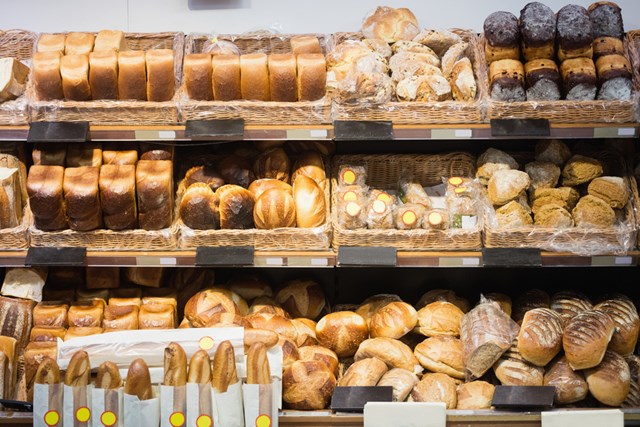
Image via Shutterstock
It’s the ultimate health-conscious grocer’s dilemma: Is wheat bread really healthier than white?
While people have been told for years that wheat bread is hands-down the healthier choice, new research proves otherwise.
A team of Israeli scientists at the Weizmann Institute of Science conducted a small study in which 20 participants consumed either processed white bread or artisanal whole wheat sourdough.
Prior to the study, the participants consumed the same amount of both white and non-white bread for several days.
And during the study, the groups consumed at least 100 grams of bread (three to four slices) per day for one week before a two-week break when they switched bread types and repeated the weeklong consumption.
Participants consumed the same amount of calories during the entire study.
After comparing each product’s effects on the participants’ bodies, researchers were surprised to find the artisanal bread wasn’t much better for the body than its white counterpart.
In fact, according to Eran Segal, the study’s senior author, the team found no clinically significant differences between the effects of the two types of bread on any parameters measured, such as glucose levels, fat and cholesterol levels, amounts of calcium, iron, magnesium and others.
However, when it comes to glycemic responses (how quickly blood sugar levels rise after eating), different people respond differently to the same meal, Segal said.
“In a broader sense, what this means is that the 'one-size-fits-all' diets that are given to the population as a whole, without personalization, are probably not optimal for everyone,” study co-author Eran Elinav said.
Whether your body responds well to white bread or whether you should avoid it may have to do with the gut bacteria living in your intestine (the gut microbiome), the researchers said.
Based on the makeup of participant’ microbiomes, the researchers said they would be able to predict their glycemic responses and ultimately be able to tell how their bodies would react to a particular bread.
But some nutritionists warn against giving up on whole grains.
“This small, short-term study does not offer a free pass to eating tons of highly processed white bread,” Samantha Heller, a senior clinical nutritionist from New York University Langone Medical Center, told CBS News.
“Epidemiological research has shown that people who eat more whole grains, such as whole grain breads, crackers, cereals, brown rice and quinoa, have a reduced risk of type 2 diabetes, heart disease, inflammation, obesity and certain cancers,” she said.
The team of scientists from the Weizmann Institute of Science note that more research undoubtedly needs to be done.
Read the full study published in the journal, “Cell Metabolism.”
